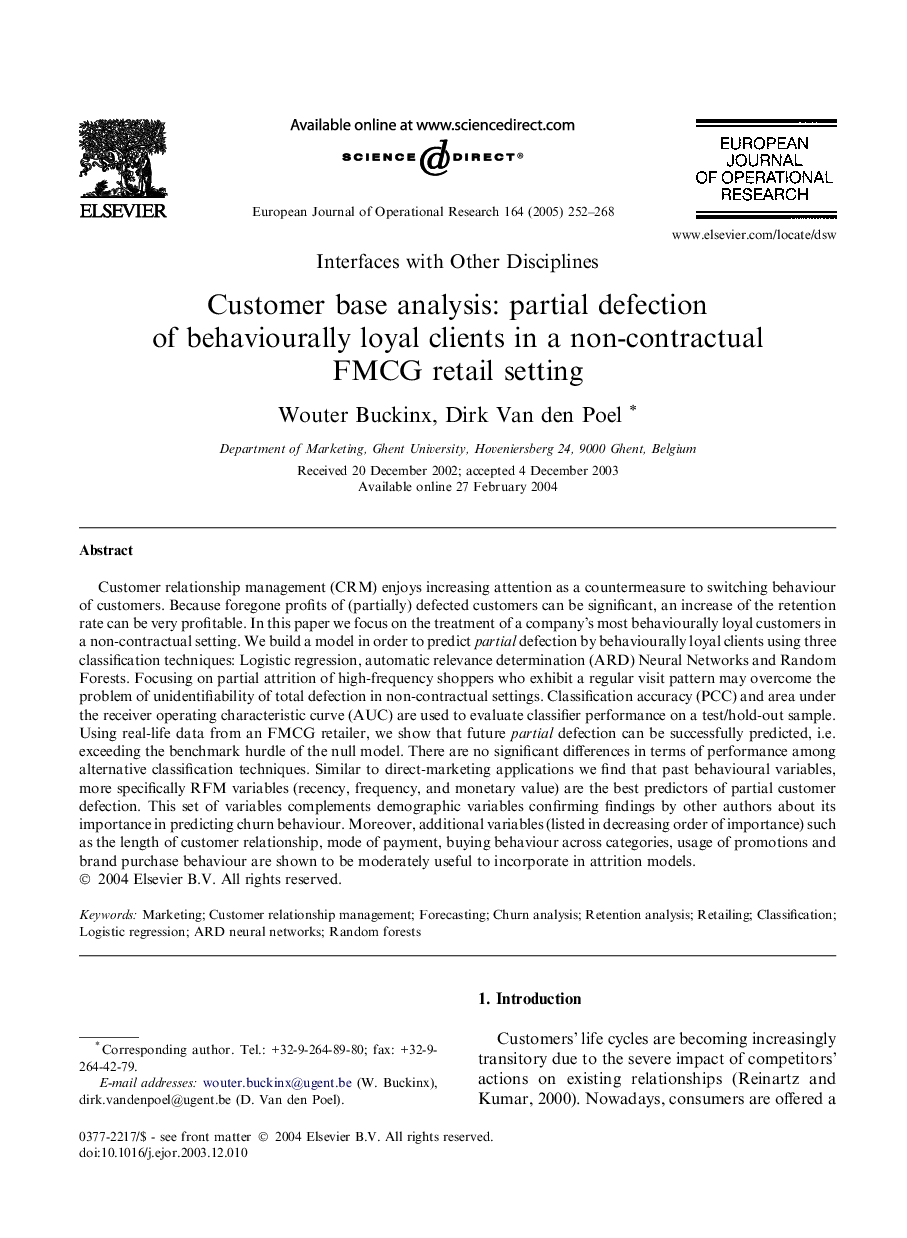| Article ID | Journal | Published Year | Pages | File Type |
|---|---|---|---|---|
| 9663851 | European Journal of Operational Research | 2005 | 17 Pages |
Abstract
Customer relationship management (CRM) enjoys increasing attention as a countermeasure to switching behaviour of customers. Because foregone profits of (partially) defected customers can be significant, an increase of the retention rate can be very profitable. In this paper we focus on the treatment of a company's most behaviourally loyal customers in a non-contractual setting. We build a model in order to predict partial defection by behaviourally loyal clients using three classification techniques: Logistic regression, automatic relevance determination (ARD) Neural Networks and Random Forests. Focusing on partial attrition of high-frequency shoppers who exhibit a regular visit pattern may overcome the problem of unidentifiability of total defection in non-contractual settings. Classification accuracy (PCC) and area under the receiver operating characteristic curve (AUC) are used to evaluate classifier performance on a test/hold-out sample. Using real-life data from an FMCG retailer, we show that future partial defection can be successfully predicted, i.e. exceeding the benchmark hurdle of the null model. There are no significant differences in terms of performance among alternative classification techniques. Similar to direct-marketing applications we find that past behavioural variables, more specifically RFM variables (recency, frequency, and monetary value) are the best predictors of partial customer defection. This set of variables complements demographic variables confirming findings by other authors about its importance in predicting churn behaviour. Moreover, additional variables (listed in decreasing order of importance) such as the length of customer relationship, mode of payment, buying behaviour across categories, usage of promotions and brand purchase behaviour are shown to be moderately useful to incorporate in attrition models.
Keywords
Related Topics
Physical Sciences and Engineering
Computer Science
Computer Science (General)
Authors
Wouter Buckinx, Dirk Van den Poel,
